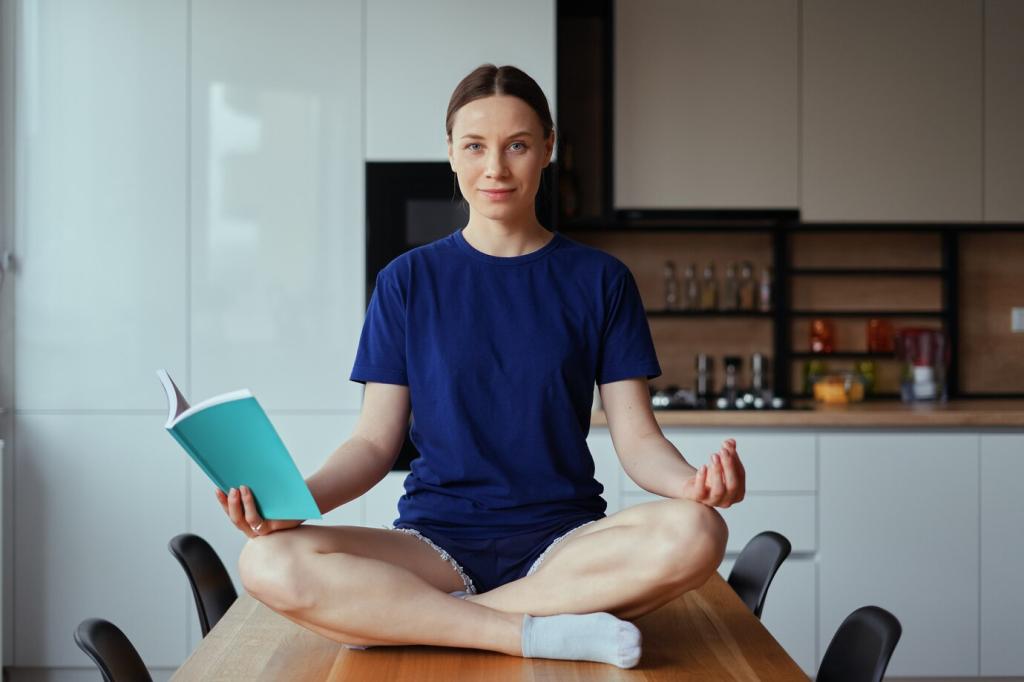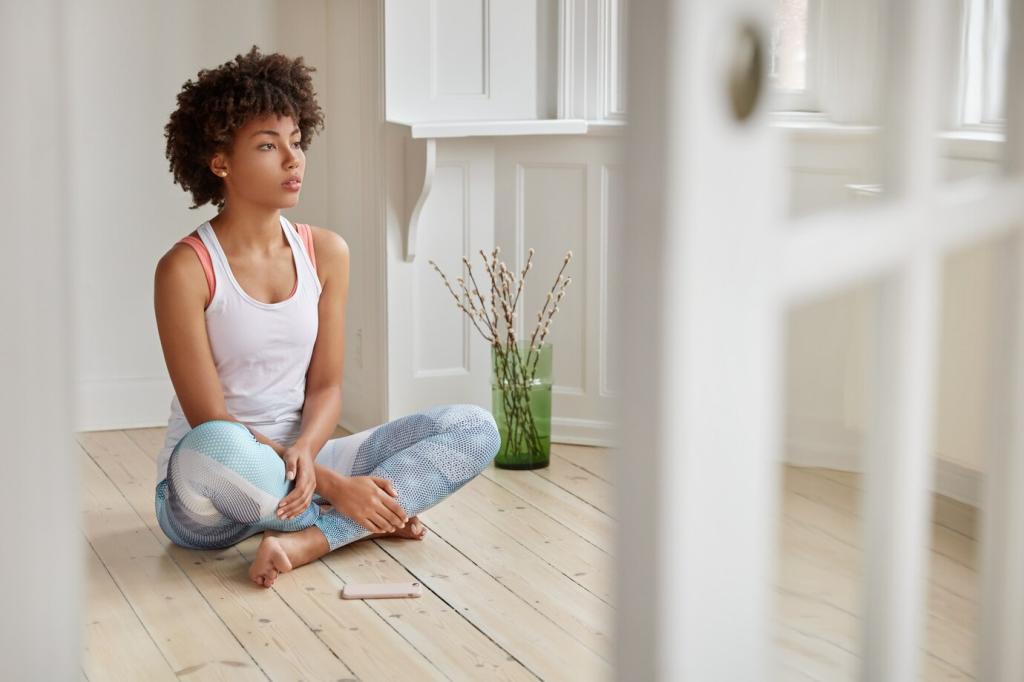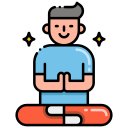Guided Meditation: Getting Started
Chosen theme: Guided Meditation: Getting Started. Step into a calm, encouraging space where your first mindful minutes feel simple, friendly, and surprisingly doable.

When a calm voice invites you to breathe, relax your shoulders, and notice sensations, you do not have to figure out what comes next. Guidance removes decision fatigue, softens perfectionism, and lets curiosity lead your first steps.
Why Guided Meditation Helps Beginners Succeed
Choose a corner where you will not be interrupted for a few minutes. Facing a wall can reduce visual distraction. Tell family or roommates your meditation window and invite them to cheer you on rather than pop in.

Breath Awareness Basics
Follow the natural inhale and exhale at the nostrils, chest, or belly without forcing anything. When thoughts tug attention away, the guide invites a soft return. Each return is a repetition that strengthens focus like a kind workout.
Body Scan Made Simple
A slow tour from toes to head trains curiosity about sensations without stories. You notice warmth, tingles, or neutral space, then move on gently. This builds non-judgment and teaches that comfort and discomfort both pass like weather.
Anchoring with Sound or Mantra
Some guides use a soft bell, ambient hum, or a short phrase such as ‘breathing in, breathing out.’ Repeating or listening gives your attention a home base. When you drift, you can simply begin again without scolding yourself.
Overcoming Common Obstacles
Wandering Thoughts
Expect mind-chatter and greet it like weather passing through. The guide often says ‘note thinking’ and return to breath. This label interrupts rumination, reducing shame and making the comeback to presence quicker, lighter, and surprisingly satisfying.
Restlessness or Fidgeting
If your legs feel jumpy, adjust posture deliberately and observe the shift. Some energy is welcome. A guided invitation to notice tingling, pressure, or urge can transform irritation into curiosity, which calms the body without forcing stillness.
Sleepiness and Slumps
Sleepiness often signals a need for rest or a posture tweak. Try opening your eyes slightly, sitting taller, or choosing a shorter, more energizing track. Then tell us if it helped, and subscribe for more alertness-friendly practices.
Your 7-Day Beginner Plan
Days 1-2: Five Minutes, Gentle Guidance
Pick one five-minute beginner track and repeat it at the same time each day. Notice one small benefit, like softer shoulders or steadier breath. Share your observation with a friend or in the comments to reinforce commitment.
Days 3-5: Adding Intention and Noting
Before you press play, set a simple intention, such as patience or curiosity. During guidance, practice noting distractions. Afterward, jot one sentence about what helped. Subscribe for daily prompts to keep intention alive.
Days 6-7: Reflection and Choice
Try one new guide or style and compare how your body responds. Which voice felt clear, kind, and steady? Celebrate one learning, however small, and tell us by replying. Your story might encourage another beginner today.
Voice and Pace Matter
Notice how the guide’s tone lands in your body. Warm, spacious, and unhurried voices help beginners relax. If pace feels rushed, try a slower teacher. Comment with your preferences so we can recommend tracks that match your rhythm.
Style, Tradition, and Secular Options
From mindfulness to loving-kindness, from secular to spiritual, choose what supports your values. Many beginners appreciate neutral language and practical cues. Explore, notice your response, and save favorites. Share your top pick to guide fellow newcomers.

